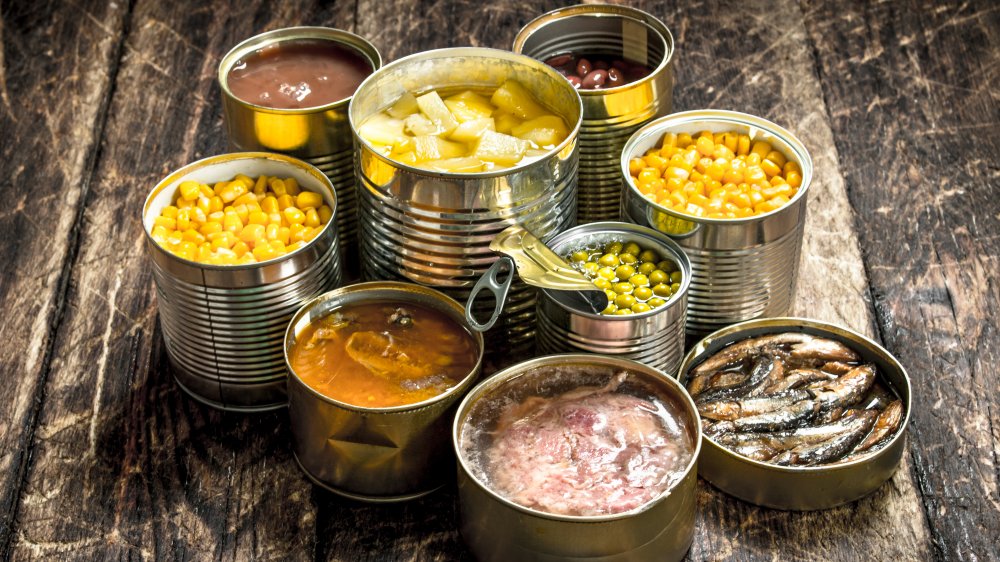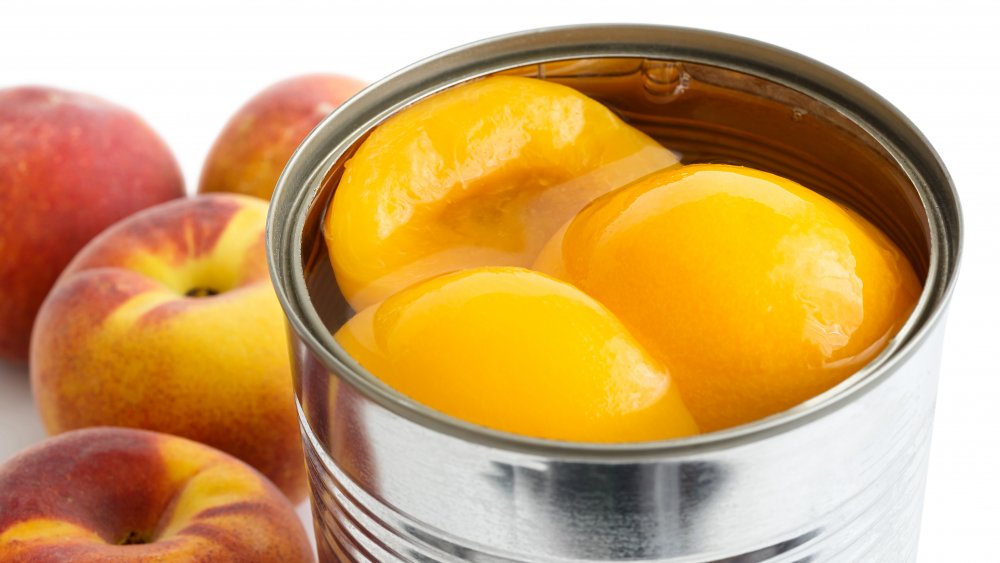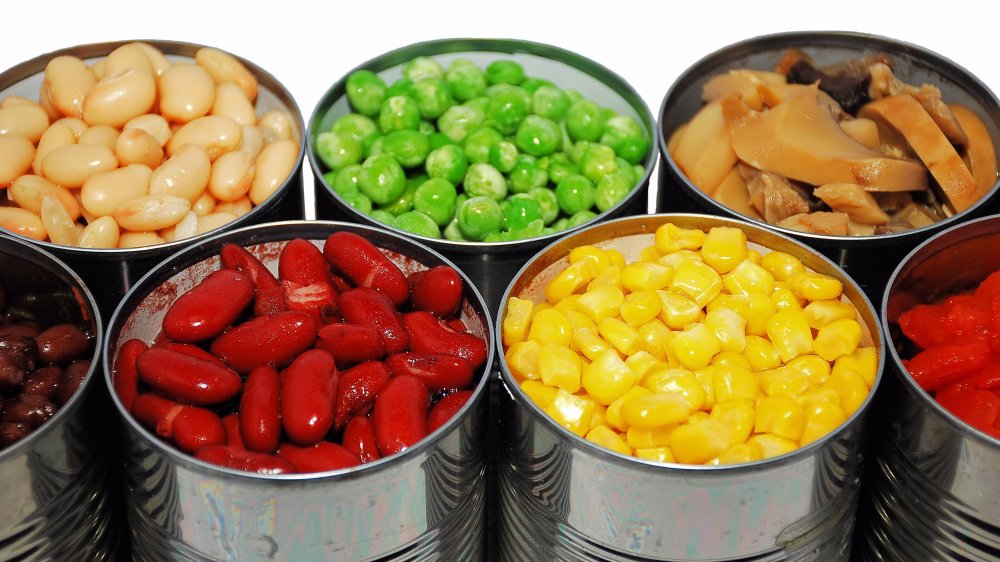What Everyone Gets Wrong About Canned Food
Canned food gets a pretty bad rap. You've probably heard or read that canned goods aren't as nutritious as fresh or frozen foods, that they're always brimming with excess amounts of sodium or sugar, or even that the cans themselves are lined with harmful chemicals. The truth (as usual) is a lot more complicated.
The process of canning dates back to the 18th century, when it was used to feed soldiers and sailors at war, and involves sealing foods in cans or jars and then pressure-cooking them at a high temperature in order to kill any harmful bacteria and preserve the food (via BBC). While this does destroy some of the nutrients present in the raw ingredients, so does cooking them from fresh. In fact, these nutrients start to deteriorate the moment the item is picked from the plant, even if you're keeping it chilled in your fridge. In other words, the canning process itself doesn't make a food healthy or unhealthy — for that, you'll need to look at individual products and ingredient lists.
How to avoid canned food packed with sodium and sugar
Some of the negative stigma about canned goods undoubtedly comes from the textures and tastes of certain canned fruits and vegetables — and how different they are from the fresh versions. After all, how could a canned beet have the same nutrients as a fresh one when they taste so different?
In reality, the canning process is designed to preserve as many nutrients as possible (via How Stuff Works). "Fresh fruits and vegetables are harvested at the peak of ripeness and canned within only four hours, sealing in their nutrition and flavor," noted Sherrie Rosenblatt, a vice president with the Can Manufacturers Institute. So, while the pressure cooking does destroy some water-soluble nutrients, fat-soluble ones like vitamins A, D, E, and K are able to survive being canned, as are most minerals. This makes canned produce a cheap and convenient source of essential nutrients for areas with limited agricultural resources or individuals on a tight budget (via Healthline).
What can really make a canned item unhealthy are the added ingredients, specifically salt and sugar used to improve the taste. For this reason, avoid foods canned in syrups or brines, which are packed with excess sugar and sodium respectively, and instead pick cans with short ingredient lists and items canned in water or their own juices (via Insider). And don't forget to drain and rinse your canned foods before cooking or serving them to remove any excess salt, sugar, or preservatives.
Why you can stop worrying about canned food and BPA
If you're already looking at the ingredient lists on your cans to scope out the healthiest options, there's one more additive you might be watching out for: BPA. Bisphenol A, or BPA, was used on the lining of food cans to prevent bacterial growth and keep the can itself from corroding over time (via C&EN). Unfortunately, studies showed that the BPA on cans was able to contaminate the food it touched (via Healthline). Once in the body, BPA acts as an artificial estrogen and messes with the hormones; too much can lead to developmental and reproductive issues and even damage your DNA (via Insider).
But, before you freak out and start to empty your pantry of any and all canned goods, it's important to note that since early 2018, 90 percent of cans used for food no longer contain BPA, according to the Can Manufacturers Institute. Now, most can linings are made from acrylic and polyester. But if you're still concerned about the lingering 10 percent, you can always check the can to make sure (via Well and Good). Happy can scanning!


